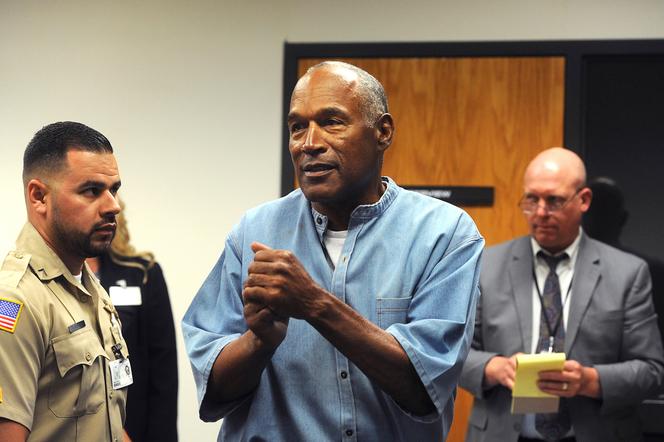


His name was Orenthal James Simpson, but he was only ever known by the diminutive "O.J." Former American football star O. J. Simpson, the star defendant in a trial that captivated the US in 1995, died of prostate cancer on Thursday, April 11, in Las Vegas, Nevada, at the age of 76. A fallen icon of American sports, he was one of the most controversial figures in American society.
Simpson was born on July 9, 1947, in San Francisco, California into a family of four children. His father, Jimmy Lee Simpson, who died of AIDS in 1986, left the family early on. As a teenager, he began playing American football at City College of San Francisco, before being recruited by the University of Southern California in Los Angeles, where he became a star.
In 1968, Simpson won the prestigious Heisman Trophy. The following year, he joined the National Football League (NFL) with the Buffalo Bills (New York State). He racked up records as a running back and was named Player of the Year in 1973. Immensely popular, he was inducted into the Pro Football Hall of Fame in 1985. After retiring from football, Simpson became a sports commentator and actor, notably in the series Roots and the Naked Gun trilogy, where he played a detective. He married Nicole Brown, a Beverly Hills nightclub waitress of German descent. They divorced in 1992 after seven years of marriage. They had two children together.
The story of the other side of Simpson began on June 12, 1994, when his ex-wife, Nicole Brown Simpson, was found stabbed to death in Los Angeles, alongside the body of her friend Ronald Goldman, who had also been murdered. After an hours-long chase down the Los Angeles freeways, followed live by TV helicopters and 95 million viewers, "O.J." was arrested by the police. His blood was found at the scene of the crime. The star was charged with the double murder.
Once a hero of the NFL, Simpson became the hero of a story taller than his 1.85-meter height. He became the lead character in a trial that would captivate the country for nine months and an acquittal that would deeply divide it. The trial, which the judge allowed to be televised, became the story of racism within the Los Angeles police force and the broader biases of American society. This occurred three years after the 1992 riots, which followed the acquittal of the four officers responsible for the beating of Black driver Rodney King. This incident became the first police misconduct captured on video camera.
You have 47.95% of this article left to read. The rest is for subscribers only.
